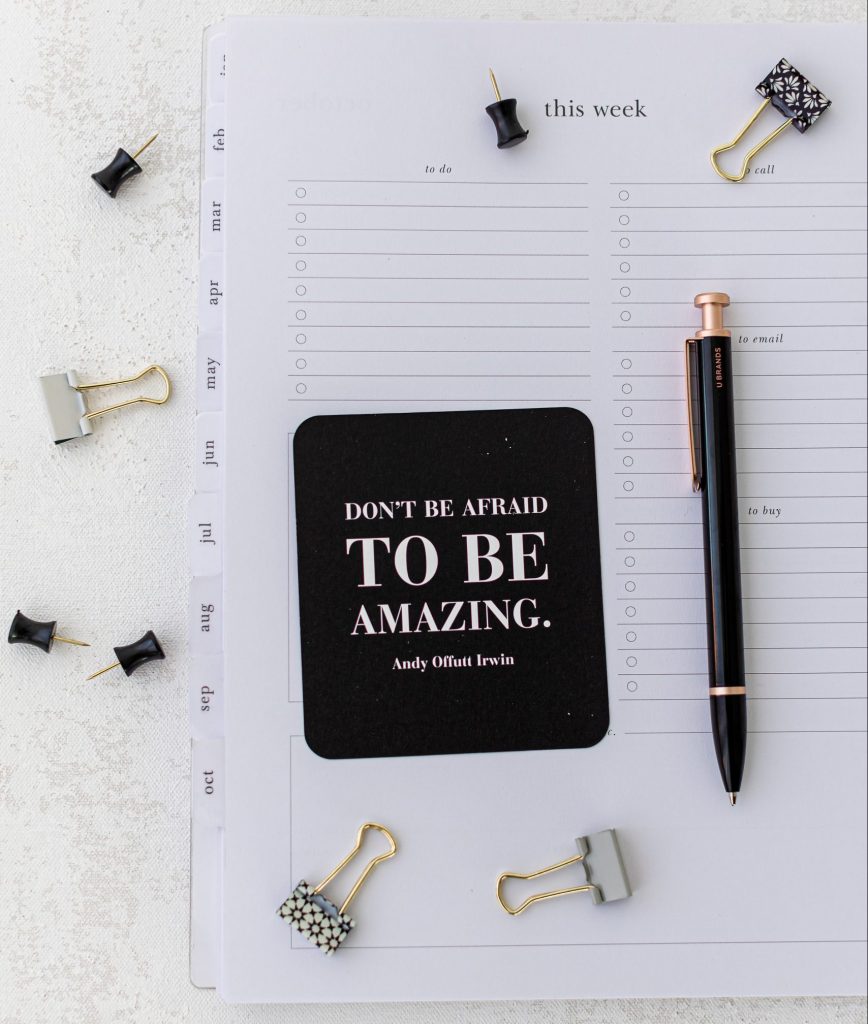Hello,
How to Build The Confidence to Thrive as a Female Wealth Owner
My Dear Friends,
Did you know that women already control one-third of global wealth, and their share is rising quickly? Women will not only be the big beneficiaries of the Great Wealth Transfer but are currently creating wealth faster than at any one time in history.
Yet when it comes to female representation, as investors, they are still falling behind significantly. Studies found that it is mostly a lack of confidence that prevents female wealth owners from thriving.
How about you? Do you own control over your wealth? Who sits in the driver’s seat where your assets are concerned? Does your wealth advisor or husband make all the decisions where the future of your wealth is concerned because you lack the confidence to get involved?
Welcome to the club; you are definitely not alone!
Female wealth owners build your confidence so you can thrive as wealth owner, now! Want to know how?
Knowledge vs Confidence
Most studies claim that women are less financially literate than men. However, nobody bothered to find out if that gap was due to a lack of knowledge or a lack of confidence.
Fact is, less than half of all women who invest (48%) consider themselves knowledgeable about investing—compared to 59% of men.
However, studies show women are often more knowledgeable in financial matters than they think.
Underconfidence in financial matters can affect men and women, but women seem to be especially prone to undervaluing their expertise.
One recent study revealed that in multiple-choice questionnaires, women tend to disproportionately check “do not know” to questions measuring financial knowledge. However, when this response was unavailable, the gap between men and women closed substantially.
Some Data
Geography: in Asia, around 41 per cent of female wealth is self-made compared with just four per cent in Europe.
Age: 72 per cent of millennials are the main decision-makers for financial planning in their households, compared with less than 50 per cent of baby boomers. However, few feel comfortable when it comes to investing. 59% admit to having no long-term financial strategy. 51% leave planning a long-term financial strategy to their spouses.
Culture: around 60 per cent of women in China see themselves as investors, compared with just nine per cent in Japan and 23% in Europe. Only 12% of women in Latin America say they have the confidence to make financial decisions.
Most people live in a restricted circle of potential
William James, Phsychologist and Phylosopher, 1842-1910
What is confidence?
Confidence affects all areas of our lives, such as work, relationships, health and wealth ownership. When we’re experiencing confidence, we know that we have the potential to set and achieve goals and that we can adapt to setbacks, learn from mistakes, and move forward when things don’t turn out as planned.
Often people think of confidence as something that the lucky few are born with, and the rest are left wishing for. Not true. Confidence is not a fixed attribute; it’s the outcome of the thoughts we think and the actions we take. No more; no less. It is not based on your actual ability to succeed at a task but on your belief in your ability to succeed.
Being confident means knowing you can handle the emotional outcome of whatever you face.
Confidence is not all-encompassing: You can have high confidence in some areas and low confidence in others. To build confidence as a wealth owner, hone your skills and develop self-efficacy by watching others, practise yourself, and take expert advice.
Overconfidence and Underconfidence
A realistic appraisal of one’s abilities enables people to strike a healthy balance between too little and too much confidence. Having too little confidence as a female wealth owner can prevent people from seizing opportunities.
Too much confidence can come off as cockiness, arrogance, or narcissism. Overestimating one’s abilities might also lead to problems such as failing to complete projects on time.
Some factors determining a person’s confidence level include genetics, temperament, cultural background, and early life experiences such as parenting style or the experience of trauma. Although those elements are generally out of our control, there are still plenty of ways to gain confidence throughout our lives.
Underconfidence can lead people to shy away from new opportunities due to the fear of failure or embarrassment. Reflecting on which opportunities are viable and the range of possible outcomes can ensure that underconfidence doesn’t prevent people from achieving success.
Self-Esteem
Self-esteem and self-confidence are different. Self-esteem is how we value and perceive ourselves. It’s based on our opinions and beliefs about ourselves.
We might think of this as self-confidence, but we can have high self-confidence in a specific area or field. Such as completing a specific task because we’ve done the same thing a thousand times. At the same time, we still lack a favourable attitude towards ourselves. This is low self-esteem!
Struggling with low self-esteem often feels as if making changes will be difficult. But there are things you can do. For example, working on our confidence across different areas is one method to slowly build self-esteem over the long term.

Regarding wealth ownership and investing, confidence plays a crucial role. People with low self-confidence are more likely to doubt their decisions, avoid risks, and are unlikely to question or seek advice.
Too many women never fulfil their potential as investors, not because of a lack of intelligence, knowledge, opportunity or resources but a lack of belief in themselves. Or, put another way, too little financial confidence.
The Supremacy
A healthy level of self-confidence helps you actively thrive as a wealth owner and secure your financial future. Research has found, for example, that people who are more confident tend to achieve more.
Confidence can also play a role in the motivation to pursue your goals, with studies linking higher levels of self-confidence in athletes with increased motivation to practice their sport of choice.
Confident people tend to display characteristics that are crucial for proactive decision-making.
- Better Communication: Confident people do not hesitate to ask questions, share ideas or address problems.
- Better Decision-Making: People who are confident are less likely to question their decision-making skills.
- Solution Focussed: Believing in your ability to find the answers to a problem results from being self-confident.
- Open to Feedback: For confident people, it’s easier (although not necessarily easy) to process and respond to criticism without taking it personally – learning from mistakes instead of internalising the difficult feedback as a comment on self-esteem.
- Greater Resilience: Those that are confident play to their strengths and take control to overcome obstacles where they can, whilst accepting when they’re in a situation they cannot control, which can result in feeling more equipped to deal with stressful situations
- Better Relationships: Having self-confidence not only impacts how you feel about yourself, but it helps you better understand and love others.
Confidence Boosters
The good news is that our confidence level is not an innate, fixed characteristic but something we can improve over time.
Whether you lack confidence in one specific area or struggle to feel confident about anything, these boosters can help.
Wax and Wane
Confidence is not something we achieve once and then have forever, but we can learn ways to boost our confidence, no matter what the situation.
Being confident doesn’t mean we will never feel unsure about something, have difficulty knowing what to do next, or experience moments of anxiety. It means that we won’t let it discourage us or cause us to doubt our worth and abilities when we feel this way.
We often assume confidence is knowing the best way to deal with all challenges and respond to every new situation we encounter, but this is impossible.
Confidence gets a boost when we experience a win or receive praise. It takes a hit when our efforts fall short of the mark, we’re criticized, rejected or simply feel a lack of external recognition. We’re only human, after all.
It’s, therefore, vital to take ownership of taking the worthwhile actions needed to sustain it. If we want to boost our confidence and self-esteem over the long term, we should keep testing new strategies, approaches and behaviours in new situations, learning what works (and doesn’t) as we go.
Up-Skill
Only 48% of female wealth owners consider themselves as financially knowledgeable. However, nobody ever analysed whether it was really a lack of knowledge or rather a lack of confidence.
Underconfidence in financial matters can affect men and women, but women seem to be especially prone to undervaluing their expertise.
Many women never fulfil their potential as investors because of too little financial confidence.
Confident people tend to display characteristics that are crucial for proactive decision-making.
People think of confidence as something that the lucky few are born with, and the rest are left wishing for. The good news is that our confidence level is not an innate, fixed characteristic but something we can improve over time.
Being confident doesn’t mean we will never feel unsure about something, have difficulty knowing what to do next, or experience moments of anxiety. It means that we won’t let it discourage us or cause us to doubt our worth and abilities when we feel this way.






